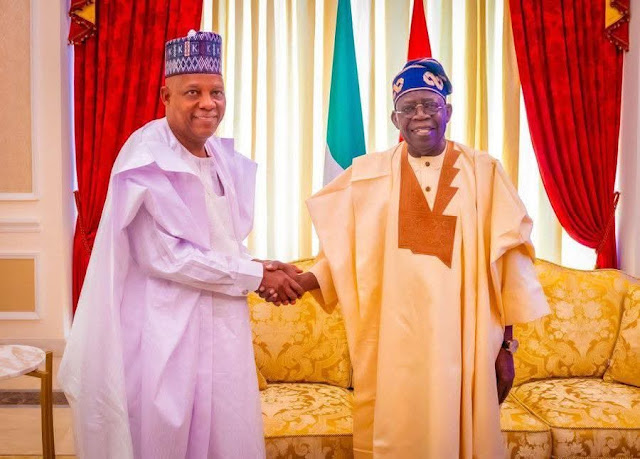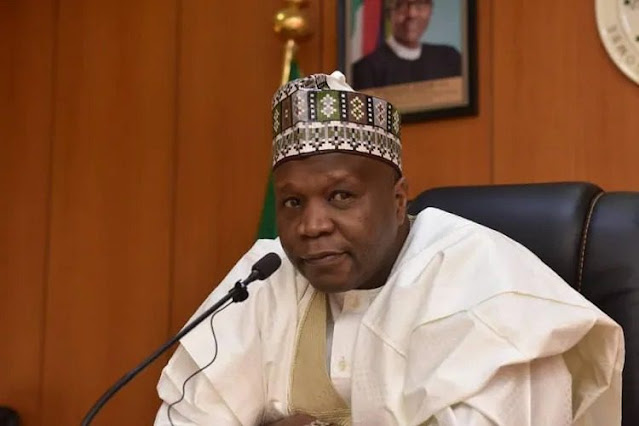On September 2, 2025, President Bola Ahmed Tinubu, the Commander-in-Chief of the Armed Forces of the Federal Republic of Nigeria, issued a heartfelt statement celebrating Vice President Kashim Shettima on the occasion of his 59th birthday. In a message filled with warmth, gratitude, and optimism, President Tinubu lauded Shettima as a loyal partner, a dependable ally, and a beacon of exemplary leadership whose contributions have been pivotal to the administration’s efforts to build a more prosperous Nigeria. The statement, shared by the President’s Special Adviser on Information and Strategy, Bayo Onanuga, not only highlighted Shettima’s personal and professional qualities but also underscored the transformative impact of their collaborative governance under the Renewed Hope Agenda. This article delves into the significance of Tinubu’s tribute, Shettima’s illustrious career, the administration’s achievements, and the broader implications for Nigeria’s future, offering a comprehensive exploration of this milestone moment.
A Bond Beyond Office: Tinubu’s Tribute to Shettima
President Tinubu’s statement began with a personal and affectionate tone, addressing Vice President Shettima as “my brother, partner, and Vice President.” This opening set the stage for a message that transcended formalities, reflecting a deep camaraderie and shared commitment to Nigeria’s progress. The President emphasized that Shettima’s 59th birthday provided a “unique opportunity” to celebrate not only his life but also his invaluable contributions to the nation.
Tinubu’s choice of words—describing Shettima as a partner chosen for his “competence and other qualities that Nigeria could depend on”—underscored the deliberate and strategic decision to select him as the running mate for the 2023 presidential election. The President’s assertion that “I did not make a mistake in choosing you as my deputy” was a powerful affirmation of Shettima’s effectiveness in office, dispelling any doubts about his role in the administration. This statement, echoed in the accompanying press release, resonated as both a personal endorsement and a public declaration of confidence in Shettima’s leadership.
The President highlighted Shettima’s “courage, sense of duty, tenacity, determination, and belief in Nigeria’s greatness,” qualities that have remained steadfast since the duo embarked on their joint mission to reposition Nigeria. These attributes, Tinubu noted, have been evident throughout Shettima’s career, from his tenure as Governor of Borno State to his current role as Vice President. The statement painted a picture of a leader whose dedication to service has been unwavering, even in the face of significant challenges.
Kashim Shettima: A Legacy of Service
To fully appreciate President Tinubu’s tribute, it is essential to examine Vice President Shettima’s distinguished career and the qualities that have made him a standout figure in Nigerian politics. Born on September 2, 1966, in Maiduguri, Borno State, Kashim Shettima has built a reputation as a principled and results-driven leader whose commitment to public service has left an indelible mark on both his home state and the nation at large.
Shettima’s political journey began in earnest when he was elected Governor of Borno State in 2011, a position he held for two terms until 2019. His tenure as governor was marked by extraordinary challenges, including the devastating impact of the Boko Haram insurgency, which displaced millions and wreaked havoc on the state’s social and economic fabric. Despite these adversities, Shettima demonstrated remarkable resilience and leadership, implementing policies that prioritized security, reconstruction, and rehabilitation. His administration’s efforts to rebuild schools, hospitals, and communities in the face of terror attacks earned him widespread admiration and established him as a leader who viewed governance as a call to serve, not a privilege to exploit.
Following his governorship, Shettima represented Borno Central in the Nigerian Senate, where he continued to advocate for policies that promoted peace, development, and good governance. His legislative contributions further solidified his reputation as a leader with a deep understanding of Nigeria’s complex socio-political landscape. Tinubu’s statement aptly captured this legacy, noting that Shettima “showed that leadership is service, not privilege, even in the face of immense challenges.”
As Vice President, Shettima has brought the same passion and dedication to the national stage. His role in the Tinubu administration has been characterized by a commitment to the Renewed Hope Agenda, a comprehensive blueprint aimed at fostering economic growth, social inclusion, and infrastructural development across Nigeria. From securing international partnerships to driving domestic reforms, Shettima’s contributions have been integral to the administration’s early successes.
The Renewed Hope Agenda: A Collaborative Vision
At the heart of President Tinubu’s tribute to Vice President Shettima is the shared vision encapsulated in the Renewed Hope Agenda. This agenda, which forms the cornerstone of the administration’s governance framework, seeks to address Nigeria’s multifaceted challenges while unlocking opportunities for sustainable development. Tinubu’s statement highlighted several key areas where the administration, with Shettima’s active involvement, has made significant strides.
One of the agenda’s flagship achievements is the forging of new global partnerships, particularly across the Atlantic. These partnerships have opened doors for trade, investment, and knowledge exchange, positioning Nigeria as a key player in the global economy. Shettima’s diplomatic engagements, both domestically and internationally, have been instrumental in advancing these efforts, showcasing his ability to navigate complex geopolitical landscapes.
At home, the administration has prioritized food security and investment reforms, recognizing that economic stability is foundational to national progress. Initiatives such as agricultural modernization programs, support for small and medium enterprises, and incentives for private sector investment have begun to yield tangible results. Shettima’s fresh perspectives and proactive approach have been critical in shaping these policies, ensuring that they are responsive to the needs of Nigerians.
Looking ahead, President Tinubu expressed optimism about the administration’s plans to “unlock new trade corridors and deliver more schools, hospitals, and jobs.” These ambitious goals reflect a commitment to improving the living standards of Nigerians and addressing longstanding infrastructural deficits. The emphasis on schools and hospitals, in particular, underscores the administration’s recognition of education and healthcare as critical pillars of development. Shettima’s role in driving these initiatives has been pivotal, as his experience as a former governor and senator equips him with a nuanced understanding of the challenges and opportunities in these sectors.
A Partnership That Transcends Office
One of the most striking aspects of President Tinubu’s statement is his description of his relationship with Vice President Shettima as a “bridge across regions and traditions, united in purpose and service.” This characterization highlights the unique dynamic between the two leaders, who hail from different geopolitical zones and cultural backgrounds—Tinubu from the Southwest and Shettima from the Northeast. Their partnership serves as a powerful symbol of national unity, demonstrating that Nigeria’s diversity can be a source of strength when harnessed for a common purpose.
This unity is particularly significant in a country often polarized along ethnic, religious, and regional lines. By emphasizing that their relationship “transcends official duties,” Tinubu underscored the personal trust and mutual respect that underpins their collaboration. This bond has enabled them to work seamlessly together, aligning their efforts to deliver on the promises of the Renewed Hope Agenda.
Shettima’s ability to bridge divides is also evident in his leadership style. As Vice President, he has consistently advocated for policies that prioritize national interest over sectional agendas. His background in Borno, a state that has faced significant security and humanitarian challenges, has imbued him with a deep sense of empathy and a commitment to inclusive governance. Tinubu’s recognition of Shettima as “an example worthy of emulation by those who aspire to lead” reflects the Vice President’s role as a role model for future generations of Nigerian leaders.
Challenges and Opportunities in Nigeria’s Development
While President Tinubu’s statement was celebratory in tone, it also implicitly acknowledged the challenges that lie ahead in realizing the full potential of the Renewed Hope Agenda. Nigeria faces a complex array of issues, including economic instability, insecurity, unemployment, and infrastructural deficits. Addressing these challenges requires sustained effort, innovative thinking, and collaboration between all levels of government and society.
The administration’s focus on food security, for instance, comes at a critical time when inflation and supply chain disruptions have driven up the cost of living for many Nigerians. By prioritizing agricultural reforms and investment in rural economies, Tinubu and Shettima aim to stabilize food prices and create jobs, particularly for young people. Similarly, the emphasis on new trade corridors reflects an understanding of the need to diversify Nigeria’s economy away from oil dependency, fostering resilience in the face of global economic fluctuations.
In the education and healthcare sectors, the administration’s commitment to building more schools and hospitals is a step toward addressing systemic gaps. However, ensuring the quality and accessibility of these facilities will require ongoing investment, capacity building, and policy innovation. Shettima’s experience in Borno, where he spearheaded efforts to rebuild schools destroyed by insurgency, positions him as a key figure in driving these initiatives at the national level.
Security remains another critical challenge. While the statement did not explicitly address this issue, Shettima’s background in governing a state plagued by insurgency gives him unique insights into the complexities of Nigeria’s security landscape. His contributions to national security policy, including efforts to strengthen community resilience and support for security agencies, are likely to remain a cornerstone of the administration’s agenda.
The Significance of Shettima’s 59th Birthday
Vice President Shettima’s 59th birthday is more than a personal milestone; it is an occasion to reflect on his contributions to Nigeria’s development and the enduring partnership between him and President Tinubu. The President’s warm wishes for “renewed vitality, wisdom, and more years of impact” encapsulate the hope that Shettima will continue to play a pivotal role in shaping Nigeria’s future.
At 59, Shettima is at the peak of his political and intellectual powers, bringing a wealth of experience and energy to his role as Vice President. His ability to combine strategic vision with practical governance has made him an indispensable partner in the Tinubu administration. As Nigeria navigates the challenges of the 21st century, leaders like Shettima—who embody resilience, competence, and a commitment to service—will be critical to the nation’s success.
A Call to Leadership and Unity
President Tinubu’s statement concluded with a powerful call to leadership, urging aspiring leaders to emulate Shettima’s example of putting “Nigeria first.” This message resonates in a country where leadership is often judged by its ability to rise above sectional interests and deliver tangible results for all citizens. Shettima’s career, marked by a steadfast commitment to service despite immense challenges, serves as a blueprint for what is possible when leaders prioritize the collective good.
The emphasis on unity is particularly timely in the context of Nigeria’s diverse and often fragmented socio-political landscape. By celebrating Shettima as a bridge across regions and traditions, Tinubu is sending a broader message about the importance of national cohesion. This vision of unity, underpinned by a shared commitment to progress, is central to the Renewed Hope Agenda and the administration’s broader mission.
Looking Ahead: The Path to Prosperity
As President Tinubu and Vice President Shettima continue their partnership, the road ahead is both promising and challenging. The Renewed Hope Agenda, with its focus on economic diversification, social inclusion, and infrastructural development, has the potential to transform Nigeria’s trajectory. However, realizing this vision will require sustained effort, innovative policies, and the active participation of all Nigerians.
The administration’s early successes—such as securing global partnerships and driving investment reforms—provide a strong foundation for future progress. In the months and years ahead, the focus on delivering more schools, hospitals, and jobs will be critical to improving the quality of life for millions of Nigerians. Shettima’s role in these efforts, as a trusted partner and a seasoned leader, will be indispensable.
Moreover, the administration’s commitment to fostering prosperity and enhancing living standards aligns with global development goals, such as the United Nations’ Sustainable Development Goals (SDGs). By prioritizing education, healthcare, and economic opportunity, Tinubu and Shettima are positioning Nigeria to meet these global benchmarks while addressing local priorities.
Conclusion
President Bola Tinubu’s heartfelt tribute to Vice President Kashim Shettima on his 59th birthday is a testament to the strength of their partnership and the transformative potential of their shared vision for Nigeria. Shettima’s illustrious career, marked by resilience, competence, and a commitment to service, has made him a vital asset to the Tinubu administration and a role model for aspiring leaders. The Renewed Hope Agenda, underpinned by their collaborative efforts, is laying the foundation for a more prosperous and inclusive Nigeria.
As the nation looks to the future, the partnership between Tinubu and Shettima serves as a beacon of hope, demonstrating what is possible when leaders unite across regions and traditions to prioritize the common good. With Shettima’s continued contributions and Tinubu’s visionary leadership, Nigeria is poised to unlock new opportunities and overcome longstanding challenges. On this occasion of his 59th birthday, Vice President Kashim Shettima stands as a symbol of dedication, unity, and progress—a leader whose impact will resonate for years to come.






